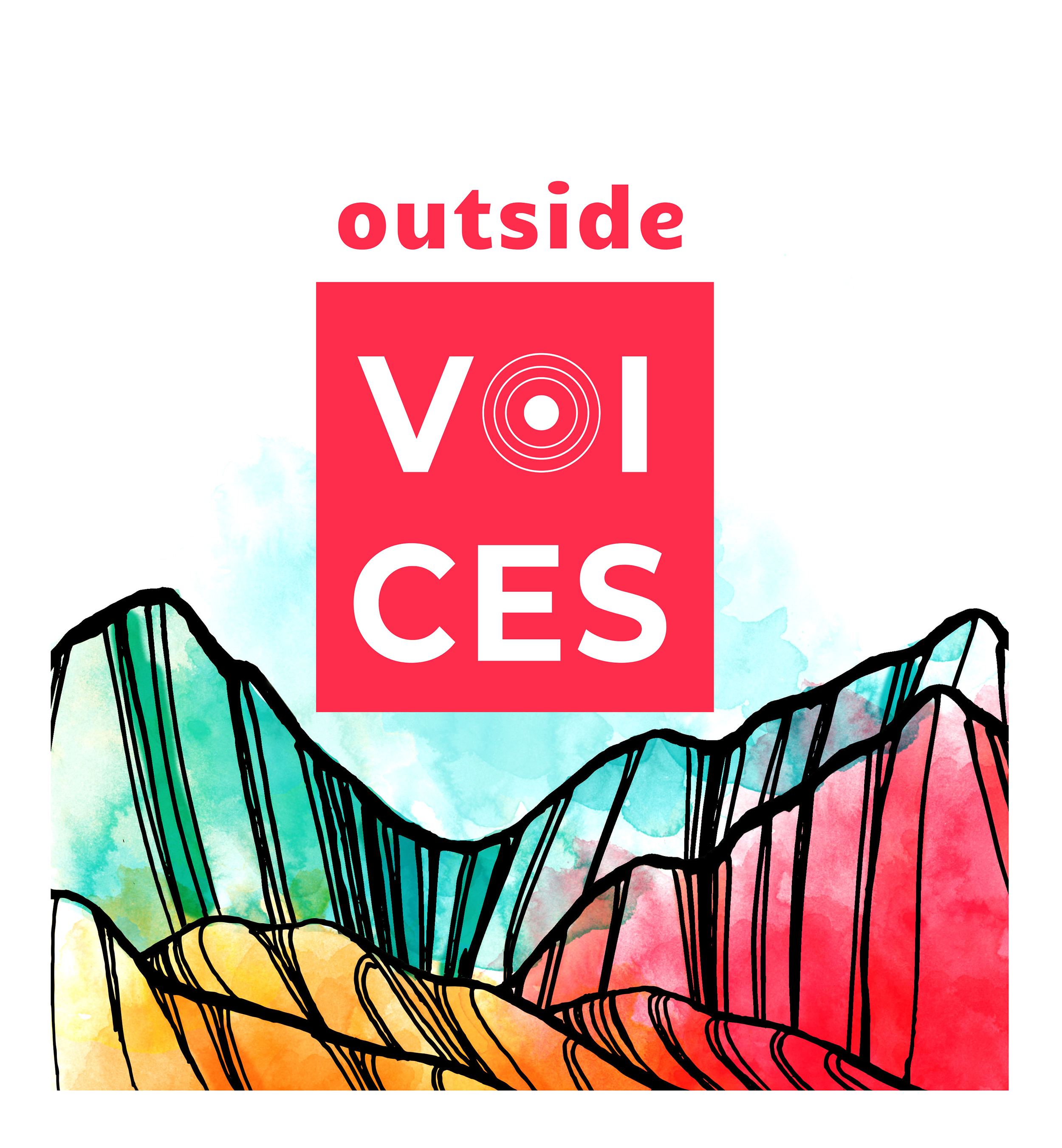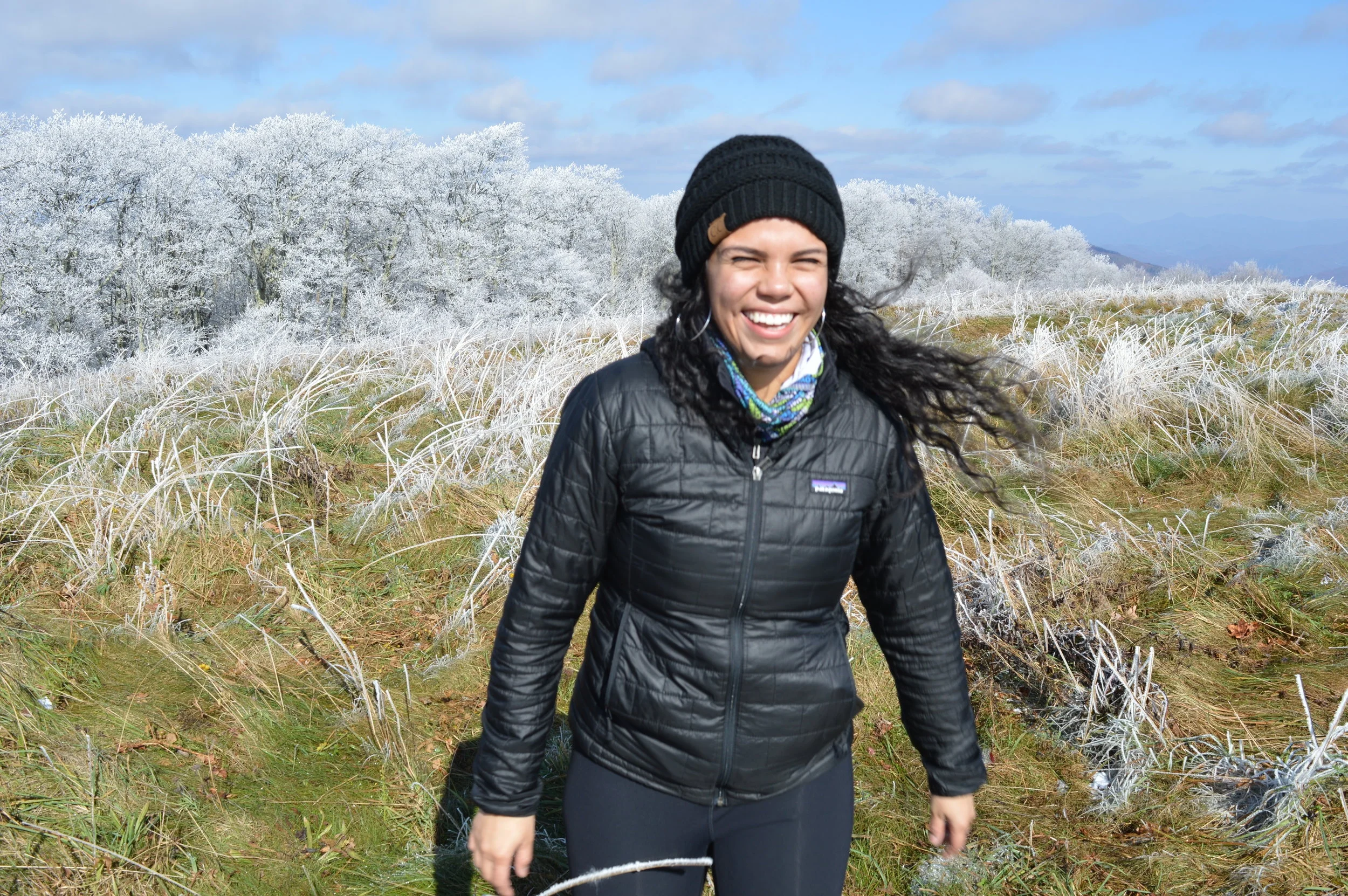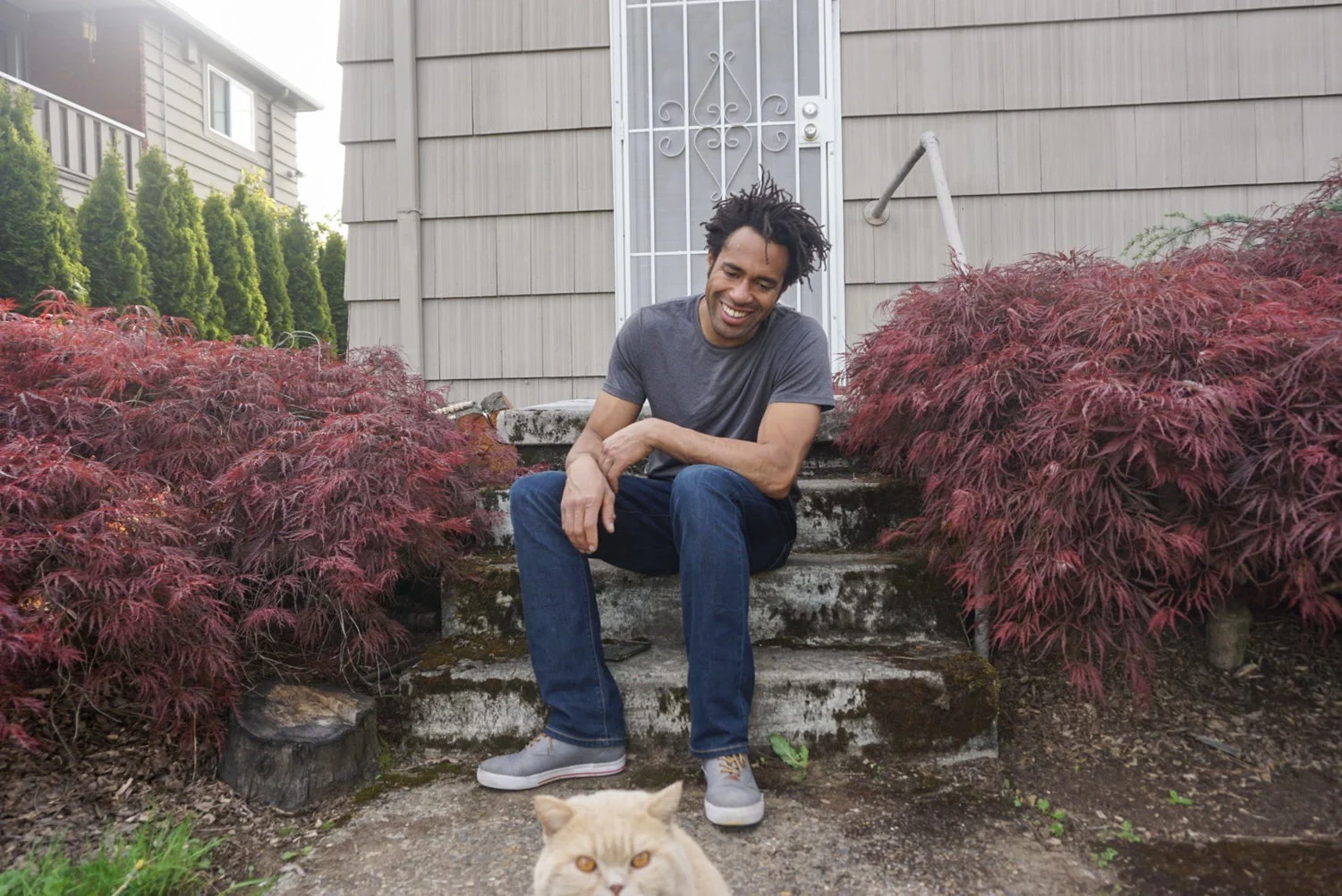Ethical Storytelling with Outside Voices and Sarah Shimazaki
“Ethical Storytelling implores us to pass the microphone and relinquish some control, knowing that each individual is an expert of their own lived experience and stories and is thus entitled to full agency over how their narrative is shared”
I first met Sarah Shimazaki in Jackson, Wyoming in October 2018. Sarah and I were both attending a conference at which scores of people from the public health sector, conservation and outdoor industries converged to talk about healthcare, diversity and the outdoors. During our time there, Sarah played a pivotal role in helping me develop my own personal narrative. I appreciated her professional insights as a creative and communications strategist for Resource Media, a nonprofit firm that helps organizations spark social change. Sarah helped me find value and a sense of agency in sharing my own personal story. I gradually came to realize that the story I wanted to share was not just my own, but my mother’s. I eventually got the opportunity to do so via a partnership with Merrell. That moment was the fulfillment of something I have always dreamed of doing—the chance to honor my mother by sharing and uplifting her immigrant story and personal connection with the outdoors. There are definitely obstacles and pitfalls associated with sharing another person’s truth. With Sarah’s guidance I learned a lot about the need for ethical storytelling. Sarah’s dedication to helping people tell their own narratives and speak their own truths in a way that is safe and uplifting to the storyteller is what makes her work so important to the outdoor community.
Below, you will find the transcript of an interview I conducted with Sarah about a new podcast she started two months ago. This Podcast is called Outside Voices.
Photo taken on Awahne land that was taken from the Awahneechee Miwok people. The land is currently known as Yosemite National Park. Photo courtesy of Kevin Keller.
Sarah, would you like to introduce yourself?
My name is Sarah Shimazaki, my pronouns are she/her/hers. I live, work and play on the lands of the Ohlone people, also known as Oakland, California. I am Japanese on my dad’s side and Filipino-Chinese on my mother’s. I am a media creative and communications strategist at Resource Media, a nonprofit communications firm dedicated to social change.
When did you know that you were a storyteller?
I think we’re all storytellers! It’s an ancient art that our ancestors used to pass down—knowledge and wisdom. I think it took me some time to reclaim that though, especially because there are language and geographical barriers between me and my ancestors. I don’t speak Japanese or Tagalog. Most of my family still live in Japan or the Philippines, or they don’t speak much English. So, it’s taken me some time to understand how my story fits within the story of those who came before me.
For me, I think I’ve realized that the stories, media, images I grew up with don’t represent me and my community so the only way to both learn about and share my culture is through storytelling. What does this look like? Asking LOTS of questions and listening, so I can work to create better representation and build an alternative to the overwhelming whiteness we see every day.
Maybe I see myself more as a storysharer. I really take my role as a story sharer seriously, because our world is made up of stories, right? There’s that quote, “the universe is not made up of atoms, but stories.” The stories we hear are the lens through which we see the world around us. Not to mention, stories are so powerful in the way they might deeply resonate with someone or connect to their emotions on a visceral level, more than data and statistics ever could. I am constantly reminding myself how intricately tied together storytelling and power are. I feel a strong responsibility to share the stories that have not been heard or were completely erased due to generations of colonization, genocide and white supremacy.
How does Outside Voices draw from your previous professional experience?
Sarah attends an annual remembrance event at Manzanar National Historical Site in Independence, California where Japanese American families were forcibly detained in internment camps during World War II. The site is located on Nüümü, and Shoshone land. Photo courtesy of Kevin Keller
This is my first time podcasting, but I’m finding there are so many different skills and experiences I’ve developed over the years that I get to draw from. Everything from creating home videos with my brother and editing them in iMovie as a child, acting and singing on stage as a teenager in love with musical theater and interviewing people and writing stories as a communications professional at Resource Media. I’m sure there are more. For a lot of my adult life, I berated myself for not having “one skill”, something that makes me a specialist instead of a generalist, or a “jill of all trades.”A project like Outside Voices Podcast makes me see how all the seemingly distant threads—my many skills, experiences, talents and knowledge—can actually come together to produce something meaningful.
What made you want to start Outside Voices?
Outside Voices Podcast really came out of need for us, Black, Indigenous, People of Color (BIPOC), LGBTQIA+ folks, people with disabilities and other underrepresented folks in the outdoors, to have a platform where we could share our own stories on our own terms.
My vision is for Outside Voices Podcast to be a platform where we can just share our stories simply because they deserve to be told. I wanted to center the deep relationships we have to nature that aren’t always amplified in the dominant narrative of the “Great Outdoors.” These are not new stories, but rather ancient ones that have gone unheard.
The thing is, I see a lot of us in the outdoor community wanting our stories told as a part of ‘changing the narrative.’ But what might look like ‘representation’ is sometimes just tokenization and extraction. For example, let’s say an outdoor podcast that usually features white males decides to interview a black womxn for an episode. What I often see happen is any of the following: 1) that interviewee is expected to be the world- leading expert on “Diversity in the Outdoors” simply because they’re the only person of color on that show 2) the interviewees’ trauma is put on full display and heavily centered in the narrative, i.e growing up in poverty, racist experiences, etc. or 3) the interviewee is othered because they’re seen as different, unique and “exotic” in the eyes of whiteness.
(l-r) Sarah Shimazaki, Olivia Van Damme and the author post for a photo on occupied Esselen Territory now know as Big Sur, CA. Photo courtesy of Kevin Keller.
What does Ethical storytelling mean to you?
To me, Ethical Storytelling is an ongoing collaborative process that honors the interviewee and their agency to co-create their own narrative. I currently give Ethical Storytelling trainings at Resource Media, where I talk about the importance of relationship-building and moving at the speed of trust. We often talk about how Justice, Equity, Diversity and Inclusion (JEDI) work is really about sharing power. Well, Ethical Storytelling implores us to pass the microphone and relinquish some control knowing that each individual is an expert of their own lived experience and stories and is thus entitled to full agency over how their narrative is shared. In terms of the podcast, that means I’m intentionally building in time to cultivate relationships with all of our podcast interviewees and ensure they have control over how their stories are told. I give them options to withdraw consent, options for what pieces to share and omit, options to review a draft script before it goes into production. Yes it takes extra time, work and back and forth, but I take my responsibility as a storysharer seriously! I couldn’t do it any other way.
Do you think Ethical Storytelling is currently being modeled in the outdoor industry?Any examples of storytelling done right?
Since ethical storytelling is a process, it’s more about what happens “behind the scenes” as opposed to the final product. So, it’s honestly hard for me to gauge what examples of storytelling are done right without directly hearing from those involved. One thing I will say for sure though—we need more representation in our mediamakers, our storysharers, so that our stories are not constantly made to fit within the dominant white narrative.
Why is Ethical storytelling important?
I think all storytelling needs to practice ethical principles, because the simple truth is the way a lot of us currently go about it is extremely harmful; both on an individual level, where storytelling can often feel invasive, tokenizing, retraumatizing and extractive, and on a community level too.
How do you believe storytelling can impact a community?
If you haven’t listened to Chimamanda Ngozi Adiche’s TED talk, The Danger of a Single Story, I highly recommend it. She talks about how, when you get down to it, stories are really about power and “power is the ability not just to tell the story of another person, but to make it the definitive story of that person.” So in other words, storytelling can REALLY impact a community, for better or for worse. The stories we tell and hear shape the way we think about a community, whether we’re reinforcing harmful stereotypes or busting myths and offering another perspective.
What do you want to see your podcast grow to?
I’d love to be able to produce more episodes, more often! There are SO many topics to cover, so many PEOPLE to feature, so many stereotypes and myths to bust.
I also want this to be a space where our community can have difficult conversations about how our work with each other is evolving. In my most recent episode on PGM ONE for example, I intentionally spent some time unpacking the ways in which people of color often oppress and harm each other. There’s a lot of work that our community needs to do when it comes to true justice, equity, diversity and inclusion that isn’t necessarily a direct response to whiteness.
Has this podcasting journey changed you at all?
Definitely! It has only just started, but I do feel extremely humbled and held by this community. As I mentioned before, I see my role as a storyteller as a huge responsibility so that means there’s a level of trust folks are graciously extending to me to share these stories. I take that seriously and that’s why my process has been extremely intentional, slow and collaborative.
Do you have anything else you would like to share with our readers?
THANK YOU to you, Danielle and everyone at Melanin Base Camp for this incredible platform.
Outside Voices is available on Apple Podcasts, Spotify, Stitcher and wherever you stream you podcasts. Can’t wait to see what the future will bring for Outside Voices.
















Sabrina Chapman is a black Canadian climber on a mission to send her first 5.14a, and yet, she didn’t even start climbing until she was 26-years-old! Her story is proof that you can start late, take a non traditional path and still pursue your passion. Help us bring Sabrina’s story to the big screen!